Are you passionate about the power of music education and its impact on young lives? If so, you know how critical it is to secure funding for music programs that inspire creativity and promote self-expression. In this article, we'll explore effective strategies for drafting a compelling letter to request financial support for your music initiatives. Join us as we dive deeper into the essential elements of a successful funding request!
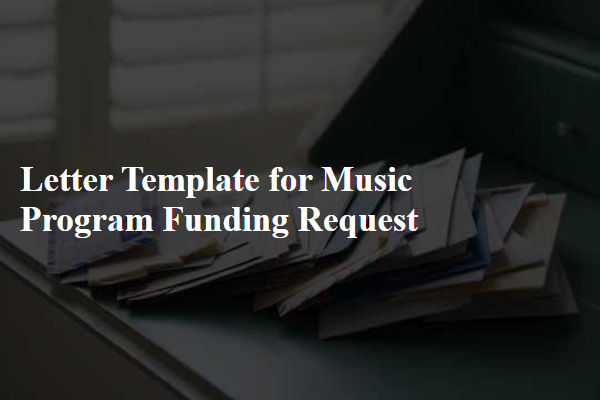
Program Description and Mission
The local community music program aims to enrich the lives of children and adults through the power of music education and performance. Launched in 2015 in Springfield, this program serves over 200 participants annually, offering a range of classes including violin, guitar, piano, and choir. The mission focuses on fostering creativity, building confidence, and encouraging collaboration among diverse groups. Dedicated instructors, many with degrees from renowned institutions such as Juilliard and Berklee College of Music, provide high-quality instruction. Regular performances, including a spring concert and summer music festival, showcase participants' talents and foster community engagement, enhancing appreciation for the arts within Springfield. Funding support of $50,000 is crucial to maintain free classes for low-income families and to expand the program's outreach initiatives.
Detailed Budget and Funding Needs
A detailed budget for a music program requires careful consideration of various financial categories that support operational success and enhance educational impact in music education. Categories of expense include direct costs such as instrument purchases, ranging from violins priced at $200 to trumpets at $600; sheet music licensing fees, potentially totaling $1,500 annually; and equipment maintenance, which can accumulate costs of approximately $800 per year for regular servicing and repairs of instruments. Additionally, funding needs encompass teacher salaries, which could average $50,000 for qualified music educators, and costs associated with workshops or guest artists, typically amounting to $3,000 per event, enhancing the program's quality and engagement. Administrative costs, including marketing materials for recruitment, might reach $1,200, alongside operational expenses of about $2,000 per year for utilities and classroom supplies. Grant requests focus on a total funding goal, aiming to secure $60,000 to effectively meet these needs and sustain a vibrant music program throughout the academic year.
Benefits and Impact on Community
A music program funding request highlights the numerous benefits it brings to the community, fostering artistic expression and cultural development. Engaging approximately 200 local students aged 8 to 18 annually, the program offers various classes, such as guitar, piano, and choir, enhancing musical skills. Research demonstrates that students involved in music education often show improved academic performance, particularly in math and reading, with a reported increase of 14% in test scores among participants. Additionally, community events, like performances held at the historic downtown amphitheater, promote local culture and include around 500 attendees per event, fostering community spirit and appreciation for the arts. The program also creates opportunities for volunteerism and mentorship, with over 30 local artists and musicians involved, generating a sense of belonging and promoting social cohesion among diverse populations. Increased access to music education strengthens community identity, supports mental health through creative outlets, and cultivates future generations of artists.
Organization Background and Achievements
The Harmony Music Initiative, based in Portland, Oregon, has been dedicated to enhancing community engagement through music education since its inception in 2015. Over the past eight years, we have successfully launched numerous programs, including the Youth Orchestra Project, which has empowered over 200 aspiring musicians aged 8 to 18 to develop their skills through weekly rehearsals and performances. Our annual Music Festival attracts more than 1,500 attendees and showcases the talents of local artists while raising funds for instrument donations to underprivileged students. Collaborating with local schools, we have facilitated after-school music classes, reaching more than 1,000 children in underserved neighborhoods. The organization has received several accolades, including the 2021 Community Impact Award from the Oregon Arts Council, recognizing our commitment to enriching the cultural landscape and fostering creativity among youth.
Connection to Donor's Objectives and Values
The music program at Riverdale High School empowers students by promoting creativity, teamwork, and cultural appreciation. The curriculum aligns with the donor's objective of fostering educational growth and community engagement through the arts. By providing funding, the program will enhance access to music education for over 300 students, facilitating workshops with local musicians and hosting performances at the prestigious City Hall Auditorium. These initiatives reflect the values of inclusivity and excellence, ensuring that a diverse group of students can cultivate their artistic talents and connect with the community. Supporting this program not only invests in individual student potential but also enriches the cultural landscape of Riverdale, contributing to a vibrant and supportive environment for future generations.
Letter Template For Music Program Funding Request Samples
Letter template of community support letter for music education funding.
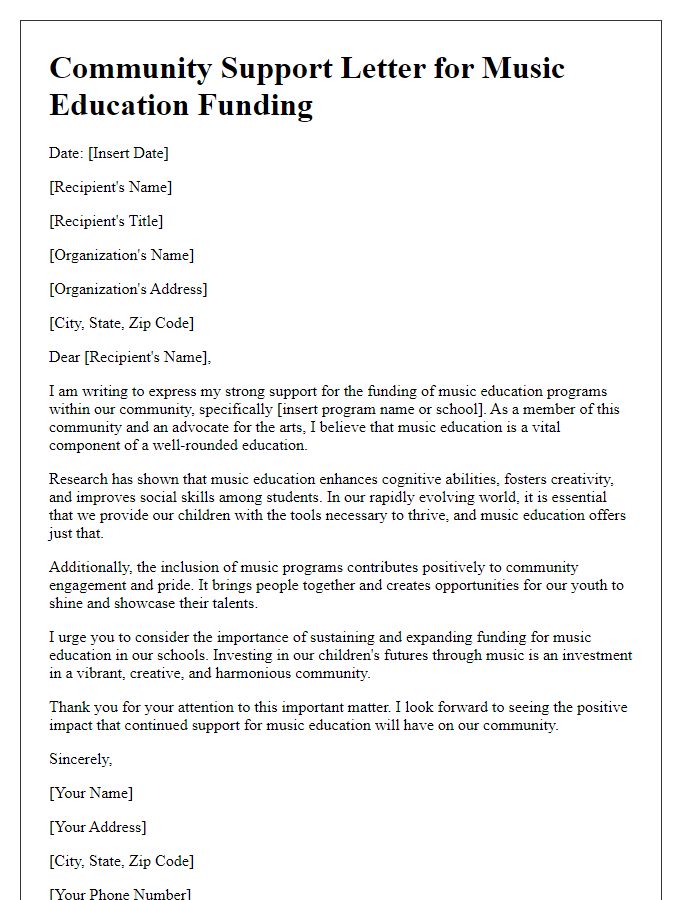

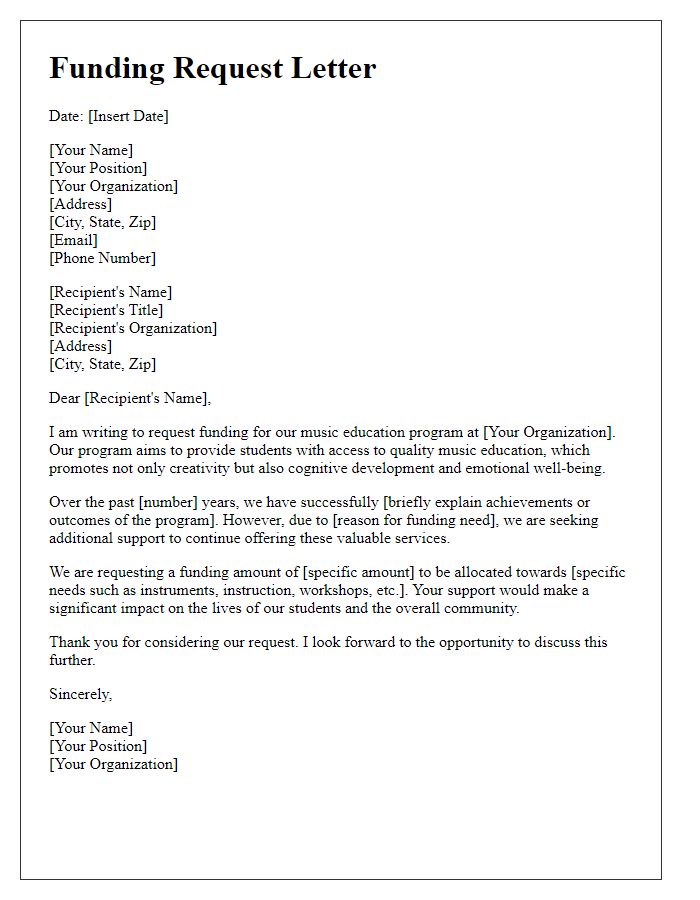
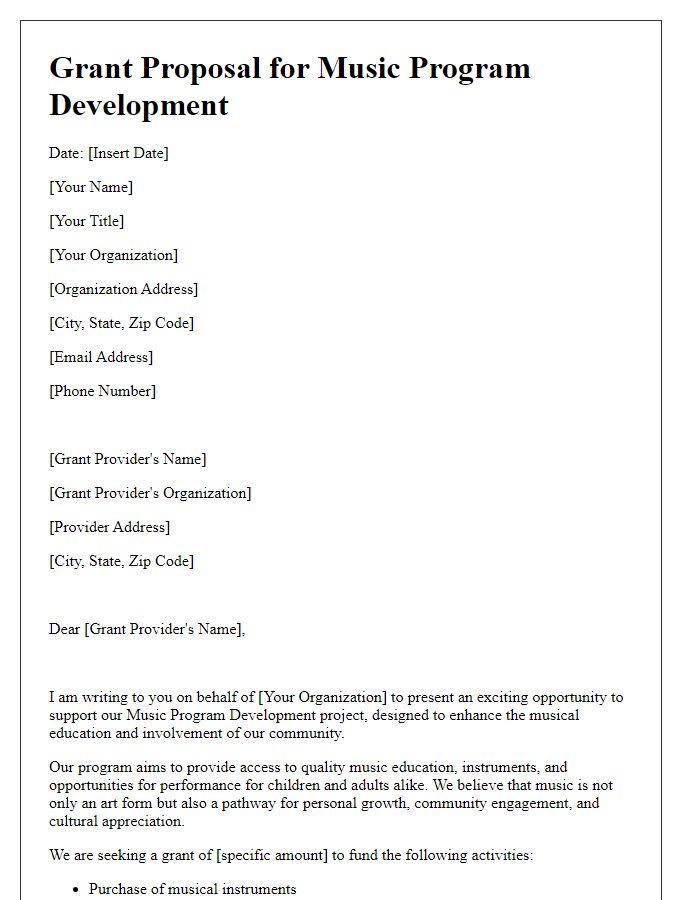
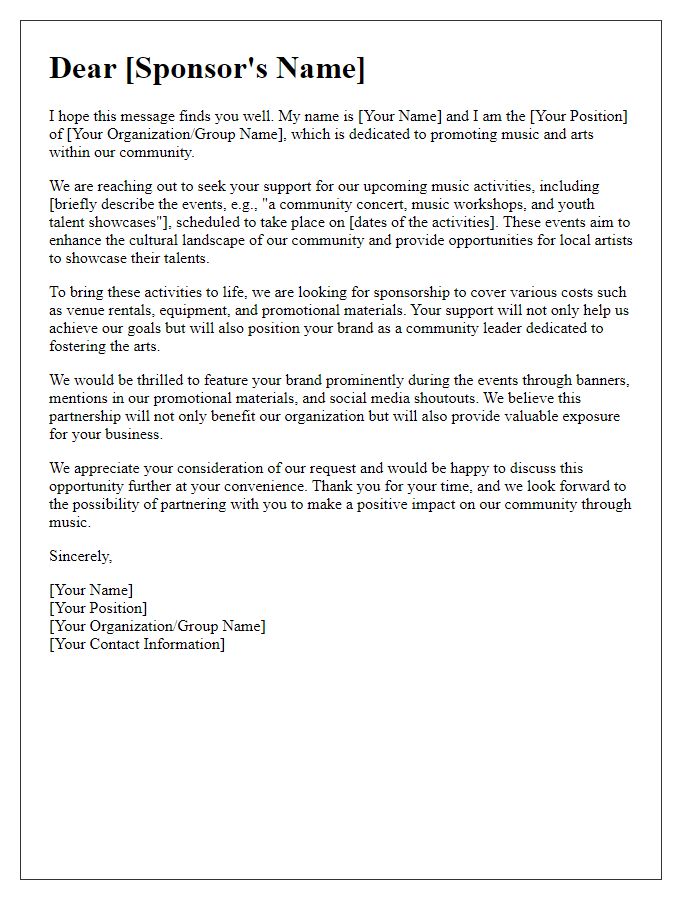
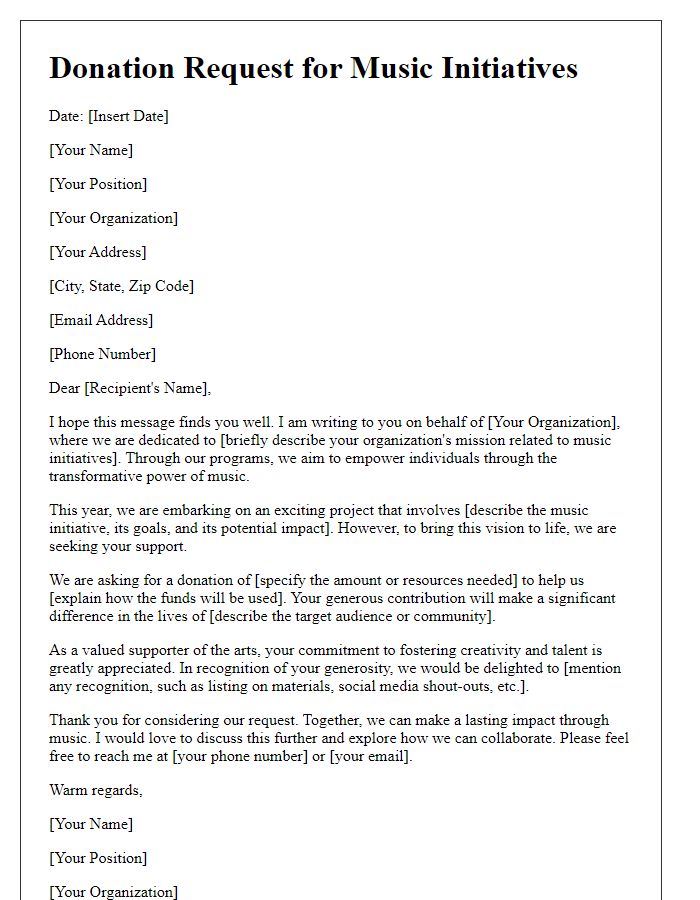
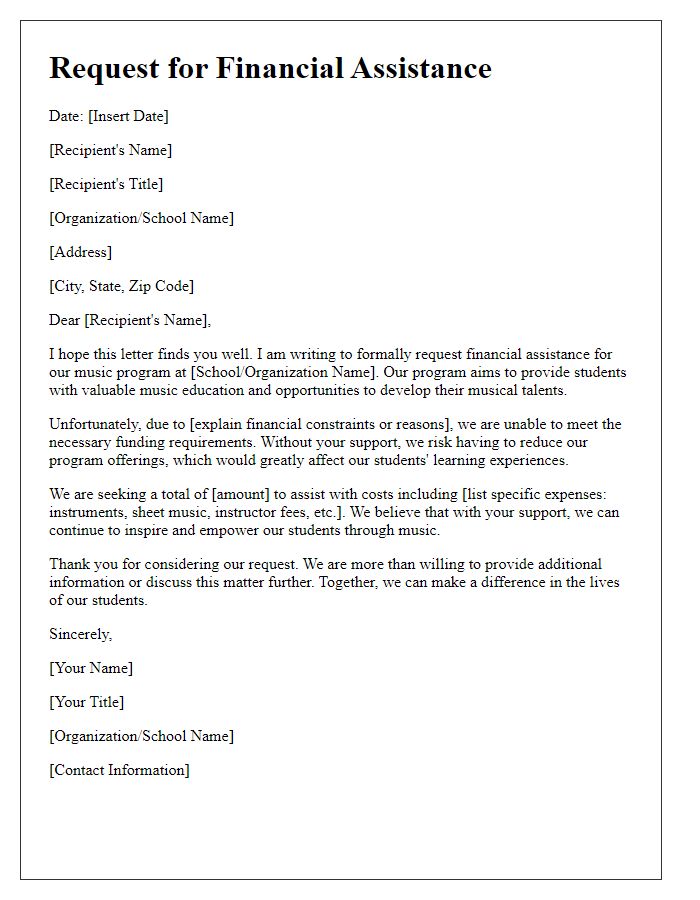
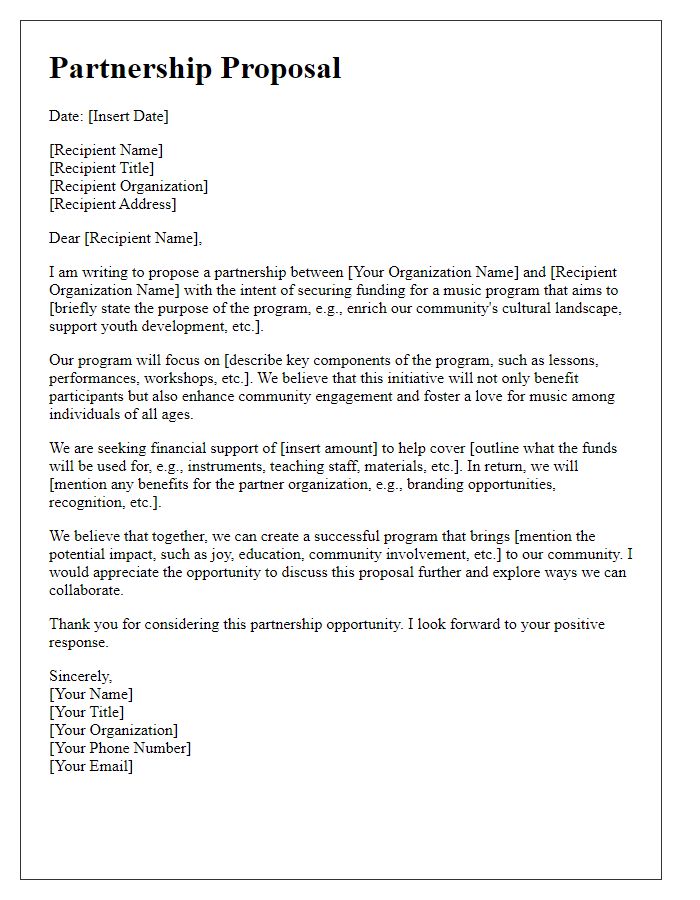
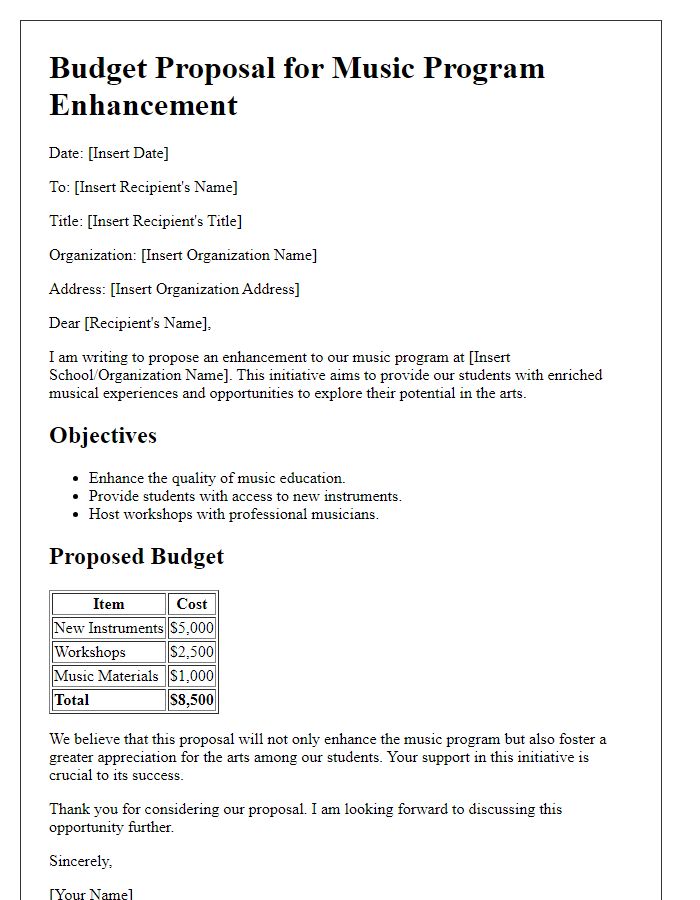
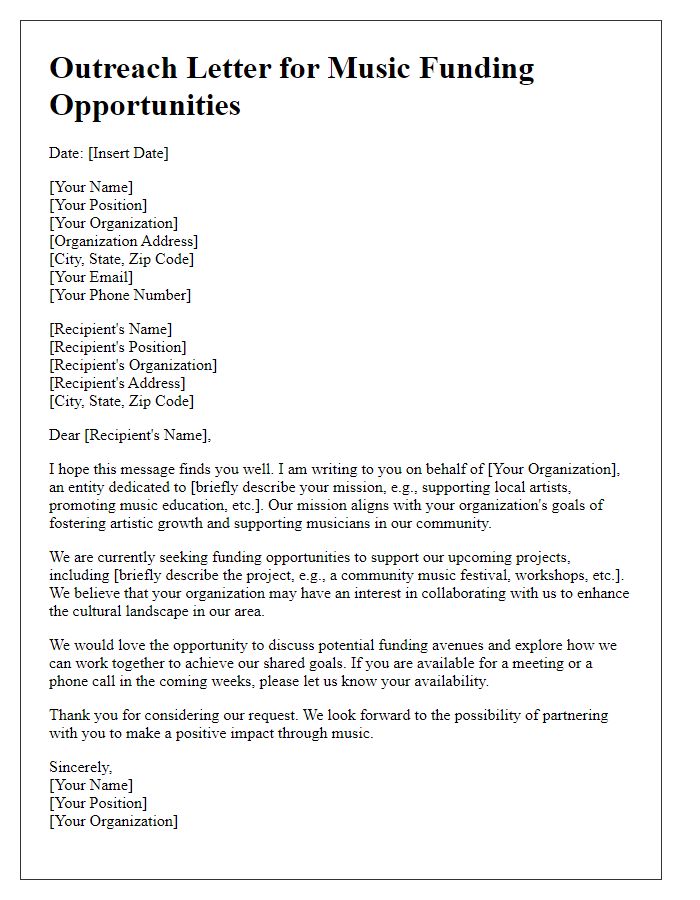
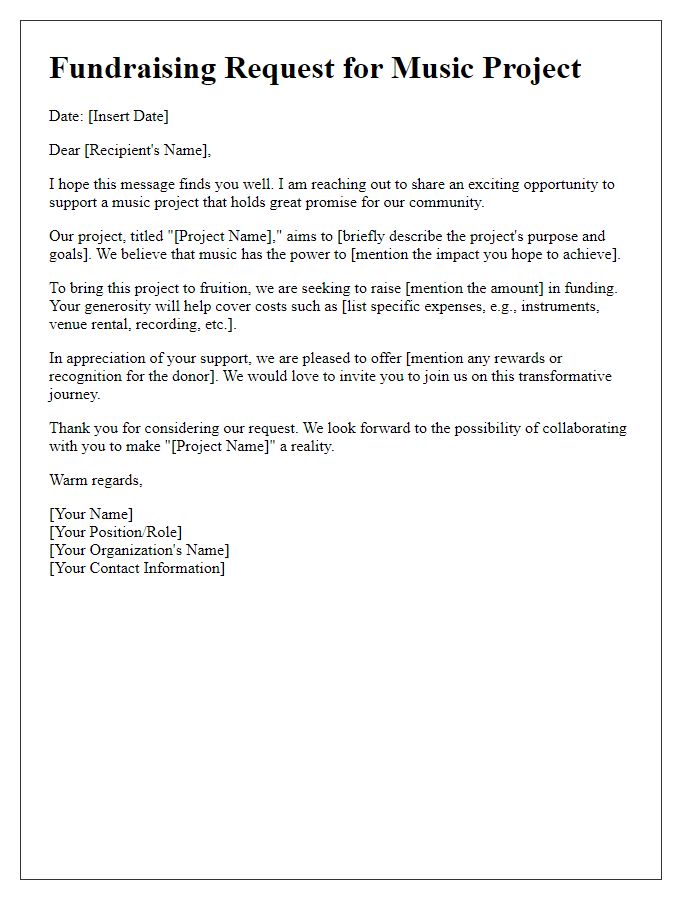

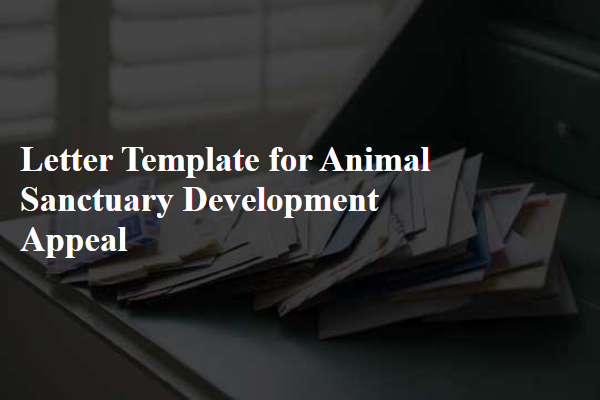
Comments